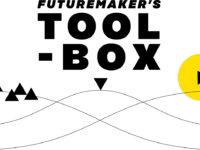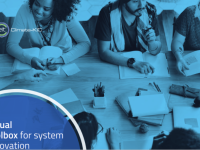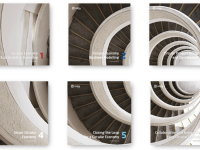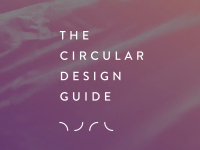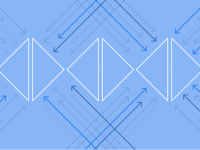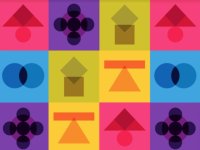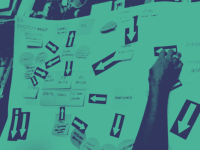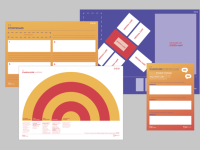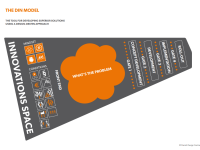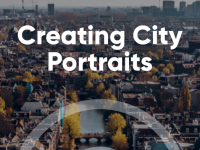Toolkit Features: Examples or Cases
This toolbox is a guide for shaping the future and developing organisational operations. It guides users through how to build an organisation’s future capability to ready it to deal with new phenomena. It guides users through all the steps of building a vision and for viewing, interpreting or shaping futures. It contains three phases: Trends and Signals, Interpretation and choices, and Shaping futures. Each tool includes step-by-step guidance and downloadable resources.
The book is a collection of ready-to-implement tools to structure and manage the challenges and exploit opportunities of sustainability and transitions. The goal is twofold: improving the understanding of a challenge by going deeper, broader and by improving the quality of the discussions and conversations around the problem among participants. It focuses not only on the problem-solving process but also on the learning process while designing and implementing solutions. The tools are presented…
This is a collection of six workbooks containing tools and guides for transitioning towards a Circular Economy. The workbooks relate to the six focus areas:
1) Circular Economy Sustainability Screening
2) Circular Economy Business Modelling
3) Circular Product Design and Development
4) Smart Circular Economy
5) Closing the Loop for a Circular Economy and
6) Collaborating and Networking for a Circular Economy.
Each workbook contains an introduction to each Circular Economy topic followed by…
The current big shift in management - both public and private - is from linear models to circular models. This resource was designed to help innovators create more elegant, effective and creative solutions for circular economy. This resource allows users to explore new ways to create sustainable, resilient, long-lasting value in the circular economy. While it is oriented towards private sector manufacturing and products, it can also be helpful for public sector organisations to think about…
The Design Sprint is a methodology for quickly solving problems through developing a hypothesis, prototyping an idea, and testing ideas with users. Design Sprints quickly align teams under a shared vision with clearly defined goals and deliverables. The Design Sprint methodology was developed at Google from a vision to grow user experience (UX) culture and the practice of design leadership across an organisation. The length of time for Design Sprints will be based on the goals and the needs of…
Our Futures is a game for discovering new ways of engaging the public in thinking about alternative futures. The basic premise of Our Futures is that participants are randomly offered a series of constraints by drawing cards and rolling a dice, which serve as a primer for imagining a participatory futures activity. The game is played either with a group of individuals competing against each other or in teams in 30-75 minutes. The game has three different gameplay models of varying scope and…
This toolkit allows organisations to change their mindset and move from a project-oriented approach towards a platform-way-of-working that is designed to tackle complex problems. The toolkit was developed and tested by the Danish Design Centre in collaboration with United Nations Development Programme (UNDP) and 40+ country offices. The toolkit consists of several mapping exercises. After using the integrated Mission Statement Generator to create an ambitious yet realistic mission statement,…
The REMODEL toolkit is targeted at companies producing products and is focused on developing economically sustainable business models through the principle of open source. While the toolkit is private-sector-oriented, some of the co-creation principles and methods can also apply to some areas of the public sector. The toolkit was published based on the experience of REMODEL with 8 Danish companies in 2018. The toolkit consists of 7 work packages and each part has a step-by-step instruction and a…
The DIN model is a methodology for developing solutions using a design-driven approach with the goals of achieving better and more innovative processes and outcomes, increasing probability of implementation, and improving user satisfaction. The model helps explore all the potential pitfalls, possibilities and limitations, particularly in the "front end" or early stage of projects. The DIN model consists of a series of phases and four ‘gates’. Each phase contains a variety of activities and…
Creating City Portraits is a methodological guide for downscaling the Doughnut, and Doughnut Economics (based on the book and model of the same name), to the city and turning it into a tool for transformative action. This guide describes the methodology and introduces principles to consider at the city level as well as the interconnections between different scales, from household to global, to transform a city to a thriving and also ecologically and socially responsible one. The guide focuses on…

